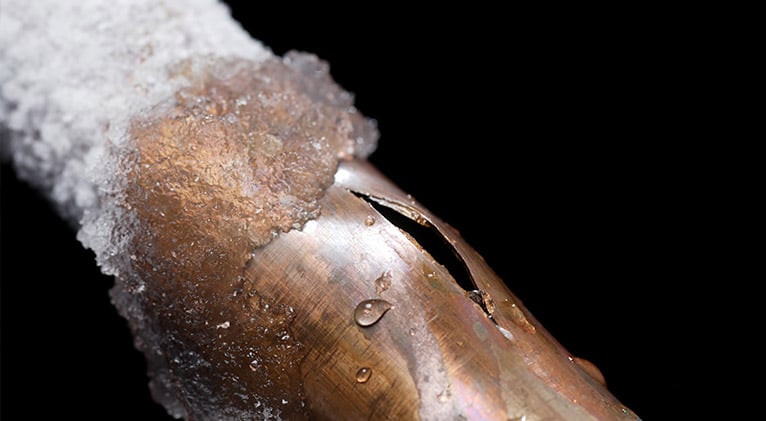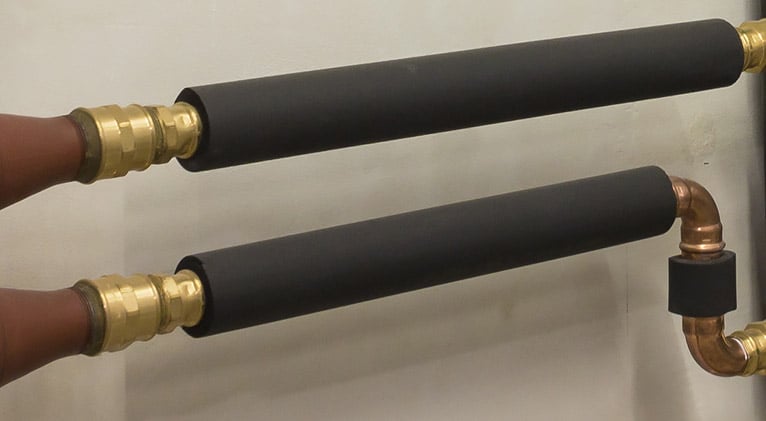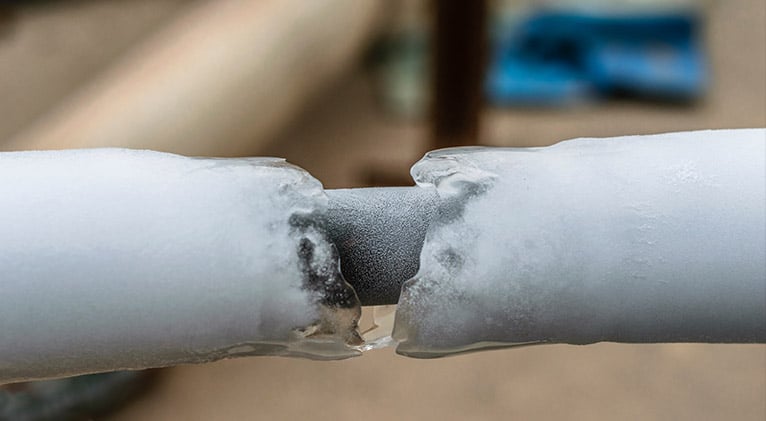Brrr, cold weather is on its way. When the temperature drops, water in your pipes can freeze and expand, causing a pressure build-up that can lead to burst pipes and flooding.
Follow our suggestions below on how to avoid frozen pipes, and what to do if they freeze.

Plan ahead
As with most things in winter, it’s best to take precautions to prevent nightmare situations. No one wants to come home to a cold, flooded home after a holiday!
If you’re going away, keep your heating on a timer and have the thermostat set to at least eight degrees – this will prevent pipes from freezing over and keep your home safe and dry.
Do you know where the stopcock for your water supply is? Now’s the time to find out, just in case your pipes freeze and you need to turn off your water supply to stop flooding. For additional peace of mind while you’re away, you could turn off your water supply – especially if very cold weather is forecast.

Pipes in exposed places or in colder parts of your property need insulation. Check pipes in your basement, attic and garage, as well as supply lines to your swimming pool or sprinkler. Install pipe sleeves or use heat tape to make sure pipes, valves, bends and fittings stay protected from the elements. If you have a water tank in a cold area of your house, insulate it too.
Our tradespeople can help you insulate pipes, fix dripping taps or valves that could freeze, and fit a smart leak detector or an automatic stop valve.
Find a plumber here.
What to do when pipes freeze
You may realise a pipe has frozen if your heating isn’t working, if there isn’t any or only a trickle of water coming out your taps or showers, or if you can see frost on the pipe. If you discover a frozen pipe, act quickly before it bursts and causes flooding.
To thaw a frozen pipe there are a few things you can try. Firstly, turn up your heating – sometimes this can melt the blockage in the pipe, especially if it’s not easily accessible. If it is, use a hairdryer on a low setting to slowly warm the pipe, or place hot water bottles or hot towels around the frozen pipe. You could also try a portable electric or fan heater.

Do not apply heat near flammable materials or use any heating device that uses a fuel or naked flame. You could damage the pipe or boil the water inside, which could cause the pipe to explode.
Our tradespeople can help
Boilers are one of the main causes of frozen pipes. If your boiler (and therefore heating) doesn’t work properly during the winter it will be unable to push heat through the pipes. It’s best to get your boiler serviced once a year, before the weather starts to turn. A heating engineer can check your boiler and your boiler’s condensate pipe – a thin plastic pipe that carries waste water to the drain, which can easily freeze if it’s not well insulated.
Find a heating engineer here.



